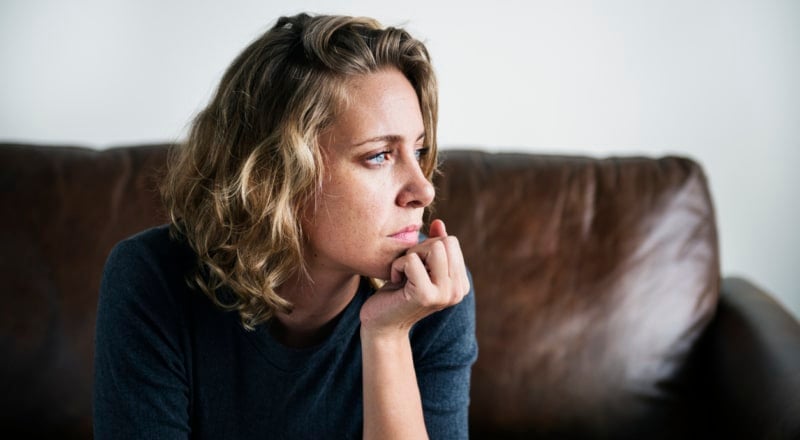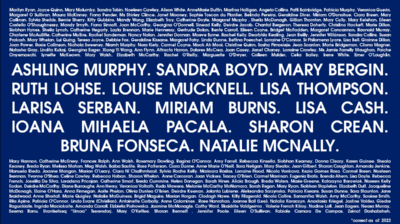Is coercive control a type of abuse?
Coercive control is now a criminal and civil offence under the Domestic Violence Act.

Coercive control is a type of abuse and is associated with emotional abuse. Abuse can happen between any two people or to multiple people, such as between friends or in a friend group, in a workplace, between partners or housemates, or by family members. Abuse involves patterns of harmful behaviour to achieve power and control over another person/s. These behaviours can be physical, emotional, psychological, sexual, economic, and usually involve a combination of many types of harmful behaviours.
What is coercive control?
Coercive control or emotional abuse is when a person uses ‘coercion’ or manipulation to control someone. This type of manipulation aims to make someone dependant on the abuser, isolated from others, afraid to leave the relationship or speak out, and to restrict their behaviour and freedom. Coercive control is very common feature in abusive relationships.
What are the signs of coercive control?
Some signs of coercive control include:
- isolating you from friends and family
- monitoring your time, whereabouts and behaviour
- controlling aspects of your life such as where you go, who you see, what you wear, or how you look
- putting you down or belittling you
- threatening and intimidating you
- humiliating or degrading you
- controlling your finances
- controlling your body, sexual health, and reproductive choices
- depriving you of your basic needs
- depriving you of medical or support service
What impact can coercive control have on a person?
Coercive control can make a person constantly on edge or confused, trying to please the abuser and avoid disapproval, conflict or punishment. When someone being controlled tries to leave, a common coercive control tactic is for an abuser to threaten to hurt themselves or others.
Coercive control can be invisible to outsiders because you may not see the abuser physically hurt or threaten, yet they are able to have emotional control over where the victim goes, what they do, and how they feel. This sense of fear and confusion can deprive someone of their autonomy, sense of self, health, rights, and quality of life.
Coercive control is very damaging to a person’s self worth and self esteem, and no one is immune to it. Even someone who is educated on the issue of coercive control can find themselves in this sort of abusive dynamic. It is never someone’s fault if they are being controlled coercively.
What is the law around coercion in Ireland?
On the 1st of January 2019 the Domestic Violence Act 2018 came into effect. The Act improves the protections available to victims of domestic violence under both the civil and criminal law. Under the Act a new law has been introduced making coercion of a spouse, civil partner or intimate partner a criminal offence. Those convicted of coercion can face up to five years in jail but the main protections available under the Act are safety and barring orders.
For more information on the Domestic Violence Act 2018 click here.
What is a safety order in Ireland?
A safety order is an order from the court that is meant to stop the abusive person (the respondent) from committing further violence or threats of violence against their partner. A safety order does not order the violent or abusive person to leave the home if the couple is living together. If the couple is not living together the order bans the abusive person from watching or being near the home and following or communicating with the other person. The safety order can last up to five years.
Who can apply for a safety order?
- Spouses (husbands/wives) and civil partners
- Parents with a child in common
- Partners in an intimate relationship (including living together and dating partners)
- Parents of an abusive child if that child is over 18
- Someone living with an abusive person, such as two relatives living together
- Former partners, such as an ex-wife or husband or someone you lived with
What is a barring order in Ireland?
A barring order requires the abusive person to leave the home and bans the person from entering the home. The order also bans the person from further violence or threats of violence, watching or being near your home, or following or communicating (including electronically) with you or a dependent person (such as your child). A barring order can last up to 3 years.
Who can can apply for a barring order?
- Spouses (husbands/wives) and civil partners
- Couples who live together in an intimate relationship (the applicant must satisfy the property test, that is, they must have an equal or greater interest in the property than the respondent)
- Parents when the abuser is a non-dependent child
For further information on the different types of orders, applying for an order and the rules surrounding orders click here.
Who can I contact for help if I am experiencing abuse?
- Women’s Aid runs a free 24 hour helpline for anyone who wants to talk in confidence about abuse in their relationship. Their helpline is available on 1800 341 900. They also offer a telephone interpretation service and instant messaging service
- Safe Ireland supports 37 domestic abuse services located in towns across Ireland. Their services provide emotional support, counselling and advice, helping women and children to find safe accommodation. Find your nearest service on the Safe Ireland website
- Men’s Aid supports male victims of domestic abuse and/or coercive control. They run a national helpline on 01 554 3811, Monday to Friday 9am to 5pm.
- The Men’s Development Network operates the National Male Advice Line on 1800 816 588 for men experiencing or who have experienced domestic violence
- If you have been sexually abused, you can visit your nearest Rape Crisis Centre or contact the national Rape Crisis helpline on 1800 778888
- Boots Pharmacies offer a Safe Space for people experiencing domestic violence. In this confidential space, people can contact one of the 39 frontline specialist domestic abuse services across the country and access free, confidential support and advice
Feeling overwhelmed and want to talk to someone?
- Get anonymous support 24/7 with our text message support service
- Connect with a trained volunteer who will listen to you, and help you to move forward feeling better
- Whatsapp us now or free-text SPUNOUT to 50808 to begin.
- Find out more about our text message support service
If you are a customer of the 48 or An Post network or cannot get through using the ‘50808’ short code please text HELLO to 086 1800 280 (standard message rates may apply). Some smaller networks do not support short codes like ‘50808’.






